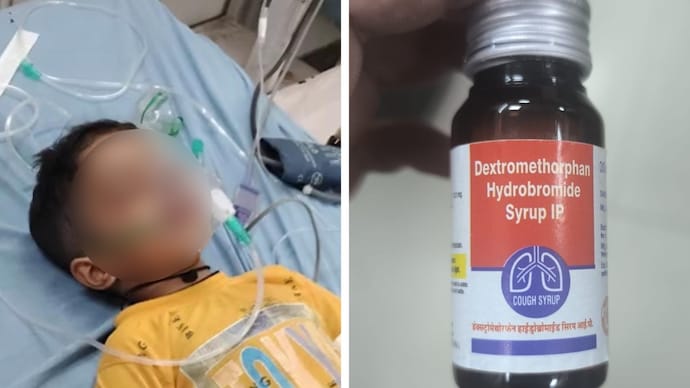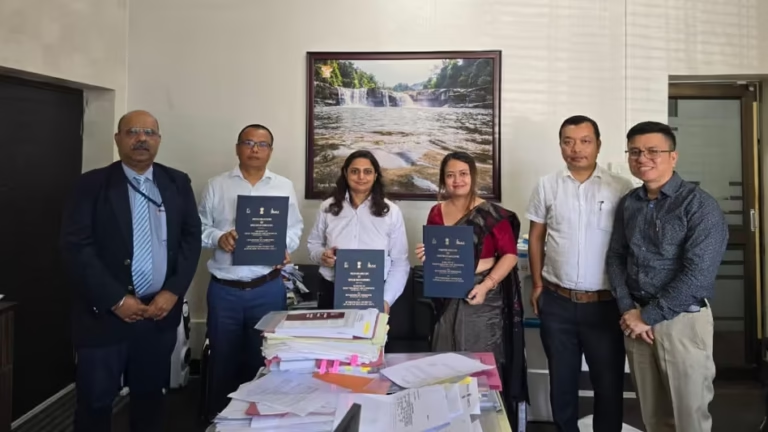Imagi Meira’s 10-Day Ultimatum: “Open NH-2 or We Intensify”
A team from the women’s organisation Imagi Meira — part of the well-known Meira Paibi tradition of women-led protest in Manipur — marched to press for the promised “free movement” on National Highway-2 (Imphal–Dimapur). After being stopped by security forces near Kangpokpi, the group’s convenor, Th. Sujata, announced a 10-day deadline for the Governor of Manipur to ensure that the central government’s September 4 tripartite decision (where the Kuki-Zo Council pledged to open NH-2 for commuters and essential goods) is actually implemented. The women also warned that failure to do so would lead to intensified agitation.
On September 13, 2025, a team from Imagi Meira — one of several women’s collectives that have played a major civic role in Manipur — attempted to march to clear NH-2 and assert the right of Meitei commuters to travel unhindered. Security forces stopped the group at Kangpokpi/Kanglatongbi (a hill-district area with a mixed ethnic presence). Following that, the convenor Thokchom Sujata (commonly cited as Th. Sujata) issued a public 10-day ultimatum to the Governor of Manipur to enforce the earlier commitment that the highway be opened for free movement; she warned that if nothing changed, the group would escalate agitations.
This was not a sudden outburst. Imagi Meira and allied groups had been staging sit-in protests since early September (Sekmai Bazaar is a named focal point), submitting memorandums demanding free highway access, IDP resettlement and questioning the implementation of recent agreements. When the government said NH-2 would be reopened after a tripartite meeting on September 4, activists expected immediate follow-through; their attempted march shows their impatience with the mismatch between paper promises and lived reality.
5 FAQs
Q1: What exactly did the government promise on September 4?
A: The Ministry of Home Affairs announced that, after talks, the Kuki-Zo Council had agreed to open NH-2 for free movement of commuters and essential goods and pledged cooperation with security forces — a formal assurance aimed at restoring access along the Imphal–Dimapur route.
Q2: Who is Th. Sujata and why is her voice important?
A: Thokchom Sujata (Th. Sujata) is the convenor of Imagi Meira. As a leader of a women’s collective rooted in the Meira Paibi tradition, her voice carries moral weight locally; Meira Paibi groups have historically influenced public opinion and civic action in Manipur.
Q3: Why are people still blocked if the highway was “reopened”?
A: High-level reopening announcements can be undermined by local checkpoints, ambiguous “buffer zone” interpretations, or a lack of coordination between armed groups, security forces and civil authorities — resulting in partial or conditional access on the ground.
Q4: What would satisfy Imagi Meira so they don’t escalate?
A: Visible, verifiable changes: clear rules showing where free movement applies, removal or easing of local blockades, and a concrete plan (with timelines) for IDP resettlement and safe returns. A transparent monitoring mechanism would also help.
Q5: How can outsiders support a peaceful resolution?
A: Support neutral, reputable humanitarian NGOs that work with IDPs; encourage independent media coverage to reduce rumor and misinformation; and back verified dialogue initiatives that bring local civil society, women’s groups and authorities to the table. Avoid partisan amplification that could inflame tensions.



